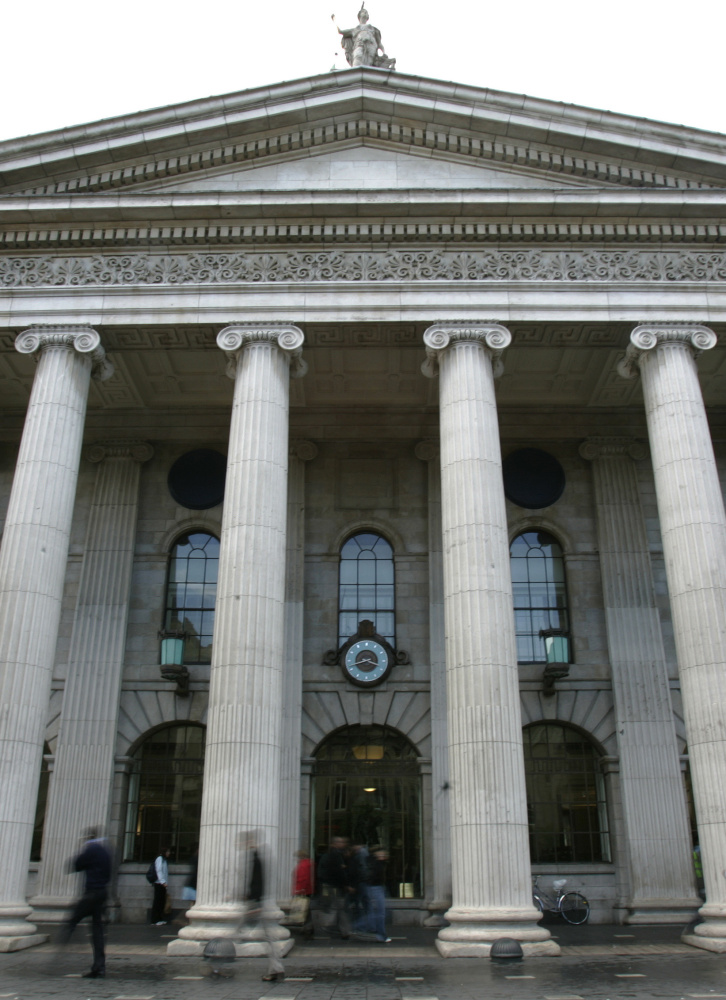AUBURN — Americans love a good revolution. We had one ourselves back in 1776, when we backed our request for the British government to leave with force of arms.
Our revolution being successful, and fundamentally good, inspired other revolutions: the French Revolution and the United Irishmen Rebellion of 1798. The French Revolution was a success; the United Irishmen Rebellion was not. But the Eireannach (Irish) kept rebelling until they got it right.
Sunday marks the 100th anniversary of the Easter Rising of 1916. The Rising, like most Irish rebellions against British rule, was an immediate failure. The response of the British government to that Rising, however, demonstrated the nature of the “union” between Britain and Ireland, and galvanized resistance to British rule, ultimately resulting in today’s Republic of Ireland.
The Rising consisted of less than 2,000 Irish men and women, armed with rifles, if at all. They seized government installations in Baile Atha Cliath (Dublin), most notably the General Post Office, as well as strategic points to ensure access to the surrounding countryside.
That the Rising would be a failure was almost a foregone conclusion: It was not a popular uprising in any sense of the word, and the shipment of smuggled arms on which its success depended, purchased in Germany and financed from America, was intercepted by the British Navy just days before. But the Irish Volunteers and the Citizen Army, under the direction of the Irish Republican Brotherhood, gave it a go anyway.
Britain can be excused its harsh response to the Rising; in 1916 World War I was raging on the Continent, and it was not going well for the British. The last thing they needed was a rebellion “at home.”
Downtown Baile Atha Cliath was reduced to rubble with the better part of a week of British cannon fire, and 16 of the leaders of the Rising were executed after they had surrendered.
Britain’s reaction was understandable, but unwise. The British response made it clear that the “union” between Ireland and Great Britain was a farce; that Britain really regarded Ireland as a colony. Sentiment against British rule crystalized, resulting in a “war” that ended with the creation of Saorstat Eireann – the Free State of Ireland. But why does it matter?
Since 1916 the Republic of Ireland has evolved from a mere aspiration into the world’s best national citizen. Ireland is ranked No. 1 in the Good Country Index. Ireland’s independence has paid the world dividends.
The Good Country Index is a measure of a country’s contribution not only to its own citizens, but to the world at large. The categories measured are comprehensive: science and technology, culture, international peace and security, world order, planet and climate, prosperity and equality, and health and well-being. Each country’s contributions are calculated relative to the country’s size.
What does Ireland contribute to the world to warrant such a lofty ranking? Ireland is ranked first in prosperity and equality, fourth in world order, seventh in culture and ninth in health and well-being.
Four of seven scores are in the top 10. Under prosperity and equality, for instance, Ireland scores very well compared with other countries for open trading, market size and foreign direct investment outflows; and scores well in U.N. volunteers abroad and development assistance.
Under world order, Ireland scores very well in charity giving, refugees generated, population growth and U.N. treaties signed. Under culture, Ireland scores highly in creative goods exported and creative services exported (mostly their music, I think!); and has a positive UNESCO dues in arrears score. Compared to other countries, Ireland contributes more than its share to the well-being of people beyond their border.
It is a distinguishing characteristic of their nation, and one that all who are of Irish heritage may be proud. The ability to decide to do good in the world began with the Easter 1916 Rising.
On Sunday, the Maine Irish Heritage Center will be continuing a series of thoughtful events to mark the anniversary of the Easter Rising. We hope that you will join us, and learn just a little bit more of what it means to be “Irish.”
Send questions/comments to the editors.


